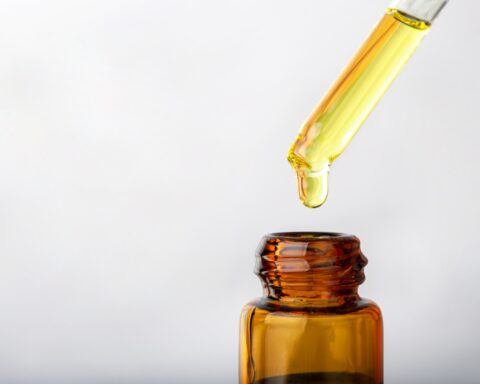Cannabidiol is a cannabis-derived chemical that differs from tetrahydrocannabinol (THC)in that it does not provide the same intoxicating effects. The production and sale of CBD have been impacted by recent federal and Texas laws addressing industrial hemp farming. These regulations are now being implemented to establish a state industrial hemp program that would allow for the legal farming of hemp and selling of “consumable industrial hemp” such as CBD. The most convenient way to purchase high-quality CBD oil in Texas is through a reliable online retailer. Most local Texas establishments cannot compete with online vendors for CBD products.
CBD Laws in Texas
House Bill 1325, which created extensive restrictions for hemp production, growing, and testing, was signed into law by Republican Governor Greg Abbott on June 10, 2019. The bill aimed at developing laws that matched the federal definition of CBD products derived from hemp. Texas lawmakers approved the bill to establish a pilot hemp program. Under the program, Texans and companies in the state could apply to become licensed hemp cultivators. Texas law defines hemp as a Cannabis sativa plant containing less than 0.3% THC.
According to the 2015 Senate Bill 339;
- Cannabis dispensaries should be licensed to sell low-THC cannabis products. Dispensary employees must be DPS-registered as well, according to the law.
- The Texas Compassionate Utilize Act of 2015(Senate Bill 399) made it lawful to use low-THC cannabis products like CBD oils as an alternative medication for epilepsy.
- Physicians in the state were also allowed to prescribe low-THC cannabis products under the new regulation (2015 senate bill 339). Cannabis sativa plant with less than 0.50% THC by weight is considered low-THC cannabis.
- The department was also tasked with creating a secure online compassionate-use register under the law. The following information must be included in the registry:
Name and date of birth of the patient and the physician who suggested the low-THC cannabis product, dosage instructions, prescribed administration methods, the total amount of low-THC cannabis that is advised, the amount of low-THC cannabis that is delivered to a patient under prescription by a dispensary.
- The registry must be set up to prevent patients from receiving prescriptions from several physicians. It must be accessible to dispensing businesses and law enforcement agencies for verification purposes.
The bill expanded the list of conditions that qualify patients for the state’s medical cannabis program to include epilepsy, multiple sclerosis, terminal cancer, autism, seizure disorders, and spasticity. Under the hemp law, only a qualified physician with the following qualifications is allowed to prescribe low-THC to a patient;
- Certified by the American Board of Clinical Neurophysiology
- Certified by the American Board of Psychiatry and Neurology
More incurable neurodegenerative disorders may be added to the list if the Texas Health and Human Services Commission sets guidelines on the qualifying diseases.
Penalties for CBD Possession
Suppose a patient has CBD that includes more than 0.3% THC, they may risk felony charges for cannabis or THC oil possession. The conviction involves a penalty of 180 days -2years in prison and a fine of $10,000.
Testing Requirements
Suppose a vendor can establish that each hemp-derived ingredient in the product possesses a THC level of 0.3%. In that case, the product does not need to be tested.
According to Texas Law, before a hemp plant can be processed, manufactured, or sold as an edible product, it must be tested. Therefore, In the United States, hemp harvests must be analyzed to detect the number of distinct cannabinoids and hazardous contaminants such as heavy metals and pesticides.
Licensing Requirements in Texas
The Texas Department of Agriculture (TDA) adopted the proposed hemp Bill Plan in January 2020. The Texas Administrative Code now contains rules and regulations for the cultivation and licensing of hemp cultivators and manufacturers.
Additionally, aspiring hemp sellers must provide fingerprints for a background check. Applicants should get a Texas Fingerprint Service Code Form after sending their documentation. Applicants can make an appointment to have their fingerprints taken online. They can also choose the procedure’s site based on their proximity.
Applicants must follow these processes outlined by the DSHS(11) to apply for a license:
- Provide entire applicant information.
- The application fee must be paid.
- Fill out the Authorization Form for the Federal Bureau of Investigation (FBI).
- Provide a legal description and location of the manufacturing facility.
- Provide coordinates from a geographic information system (GIS).
- Obtain a letter from the building owner and submit it.
- Conduct a criminal background investigation.
- Fingerprint data should be submitted.
How to Differentiate CBD from THC
THC is present in high concentrations in cannabis, also referred to as marijuana. Hemp, unlike cannabis or marijuana, contains low levels of THC. CBD Oils are often derived from hemp plants and contain high levels of CBD with only trace amounts of THC. As a result, CBD is a less contentious alternative to THC regarding health effects.
Where to Buy CBD in Texas
CBD products made from hemp are legal in the United States and commonly available over the counter at vape shops, head shops, and pharmacies. Finding a reputable online company is your best bet for buying high-quality CBD oil at a fair price while remaining compliant with Texas law.
Local stores offer a smaller assortment of products than online retailers. CBD oil, sweets, capsules, vapes, topicals, concentrates, and even pet products are available. Due to limited storage capacity, in-store merchants only carry one or two types of CBD.
Conclusion
Texas is the only state that has yet to recognize cannabis’ medicinal benefits. Currently, the state only allows qualifying patient’s access to low-THC oil with a maximum THC content of 1%. Furthermore, the Texas Compassionate Use Act allows only a few dispensaries to sell low-THC/high-CBD oil. The Farm Bill was signed in 2018 by former President Donald Trump. Hemp with less than 0.30 percent THC is now allowed in the United States, thanks to new federal regulations. Hemp was removed from Schedule I of the Controlled Substances Act due to the Farm Bill.
- Eye Spy: Worldwide Eye Color Percentages - April 19, 2024
- Elevate Energy, Soothe Stress, And Peak Performance with The New UNBEETABREW Coffee Sensation - September 21, 2023
- Chef Bob’s Coffee: A Journey Fueled by Passion - July 29, 2023







